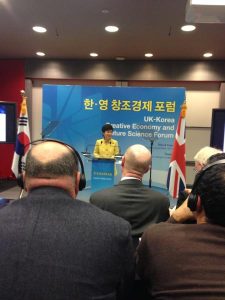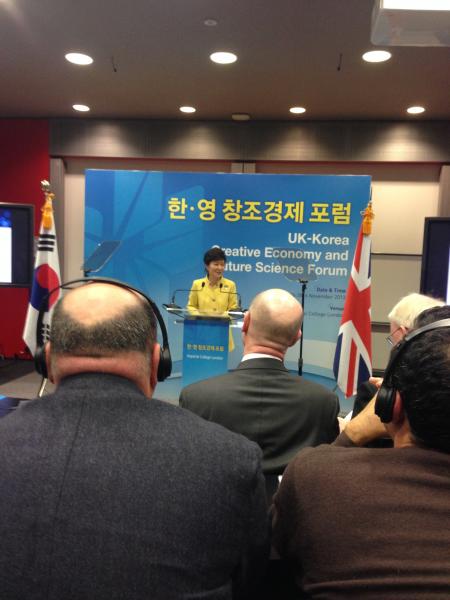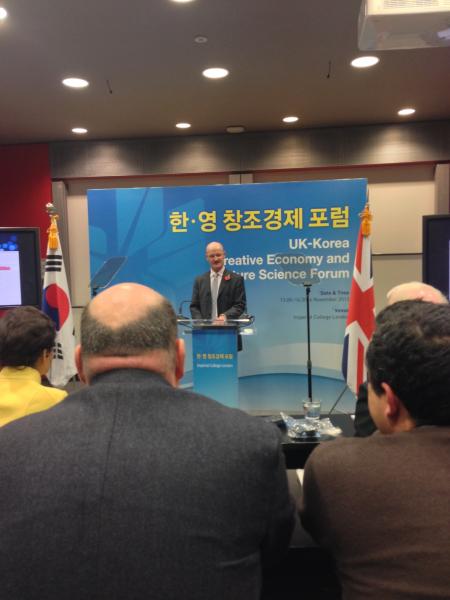News Story
Data for a Creative Economy Meeting with the South Korean Prime Minister
Thursday 7 Nov 2013
Data in various guises is a big topic right now. Specifically, Open, Linked and Big Data are seen as drivers for economic growth, platforms for research and enablers social good (for example facilitating transparency in government). Generally, data technologies are seen as a key technology by many of the world’s top economies.
Aligned with the above the Korean Prime Minister, Park Geun-hye, has placed creativity at the heart of her government’s strategy for ensuring continued economic growth for her country. Within this strategy the Creative Economy Forum was established as a Korean/UK Governmental meeting to discuss how Korea and the UK could collaborate over three related topics:
· Developing a Data-Based Creative Economy,
· Collaborative Research in Future Innovative Technologies, and
· The Development of Digital Cultural Content
Besides myself the Data-Base Creative Economy session had, from Korea: the CEO of Saltlux (a semantics, search and big data company); the head of the Korean Open Knowledge Foundation, the CEO of Kweather (a national Korean weather service); and Professors and Senior Researchers from Seoul National University School of Law; the National Information Society Agency; and Chungang University. From the UK the cohort included senior researchers from Imperial College and the Open Data Institute.
This was followed by a plenary session with the main talks coming from the Korean President and David Willets, the UK Minister of State for Universities and Science. In her talk Park Geun-hye outlined how the world, in her view, was moving on from Adam Smith’s 18th century notion of a country’s wealth being based upon production and productivity (which was revolutionary at the time) to one based on creativity. She gave an analogy of a chef choosing to no longer simply trying to produce more and more food but continually developing new recipes (for innovation and growth).
David Willets talked about the similarities between Korea and the UK, the strength of UK research and the eight key technologies for furthering UK economic growth: Big Data, Space, Robotics and autonomous systems, Synthetic biology, Regenerative medicine, Agri-science, Advanced materials and Energy. In January this year David Willets announced £500 million of funding for these areas including £189 million for Big Data.
Overall it was a fascinating day and I expect future collaboration opportunities to arise. Our session moderator the CEO of Saltlux has already participated in one of our EU project (SUPER). A first step here will most likely be a Memorandum of Understanding between the Open Data Institute and the Korean National Information Society Agency.
Korea is, by the way, placed 15th globally in terms of GDP by the United Nations is also place 4th in terms of Internet connectivity speed.
Related Links:


Connected
Latest News
Latest KMi AI research presented at the OU FAIESTA
KMi secured a new UKRI Metascience project to assess UK’s competitiveness in research
KMi nets £106k UKRI grant to put AI in the grant-review driving seat







